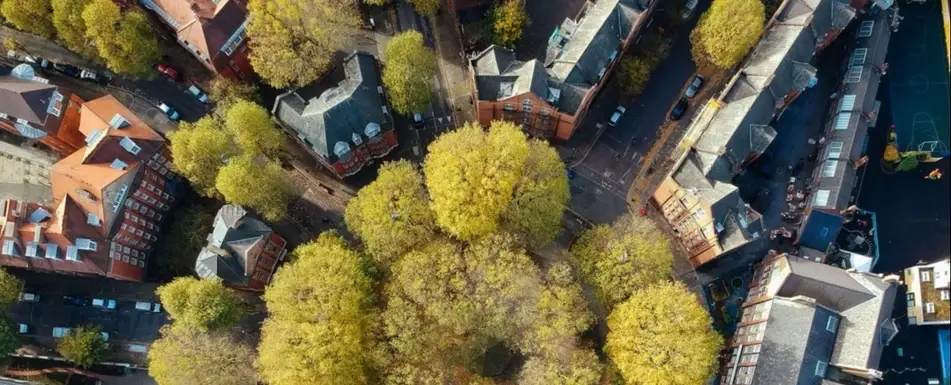Getting to Know Your Office Neighborhood

During the week, we spend most of our waking hours at work—but how much do we know about the area surrounding our offices, the neighborhood where we spend all this time?
For many of us, the answer may be “not much.” You may know the closest public transit stops or restaurants to grab a quick bite, but probably not the history of your neighborhood, local community leaders (past and present), or the trends that have changed and shaped the area.
Getting to know your office neighborhood on a deeper level is one way to live out the social-impact philosophy. Just as you want your work to be more than just a day job, a little bit of research can help you see your workplace as more than just a place you spend seven to eight hours a day.
Learn about the neighborhood’s history
Every neighborhood has a history. Your local library or historical society is a good place to start digging to learn more about when your neighborhood was established, what it was like way back when, and how it has changed over time. Explore news archives to get a feel for what the main issues were in those early years.
You can also do your own research just by looking around: What prominent institutions (houses of worship, schools, government buildings, community centers, etc.) do you notice around the neighborhood? Do you see any streets that seem to be named after prominent local figures? Like a journalist, use what you see around you as “leads” for your research into the local history.
If your organization maintains its own archives, there may be valuable information in there as well. You could check with a staff archivist or librarian, or ask your boss or a longtime employee if they know of any organizational archives.
Reach out to local schools and service providers
To learn more about what’s happening in your office neighborhood today, connect with the institutions that are on the frontlines: local schools and service providers.
Some schools have community engagement professionals who work with parents, local businesses, and other community members to support students and help them succeed. They can tell you about their student population, their greatest needs, and how you can get involved. You can also attend school board meetings or city council meetings to learn about the current issues facing local students and parents.
Direct service providers such as food banks and food pantries, homeless shelters, and Community Action Agencies can also provide insight into current issues and ways you can help. For example, your office could hold a donation drive for requested items.
Patronize local businesses
While purchasing from and partnering with big chain restaurants and companies may be your first instinct, buying from local businesses is one concrete way to learn more about and support your office neighborhood. For example, order catering for your next office lunch from a local restaurant or work with a local printer to produce the handouts for your next conference. Make sure to acknowledge the businesses from the front of the room or with a placard near the finished product so that other people will consider patronizing them as well.
Your purchasing power can have an even greater impact if you support local companies owned by women or people of color, who tend to face more barriers to launching and sustaining their businesses.
To find businesses in your community, you can check all sorts of places, from your local Chamber of Commerce to the community corkboard at your favorite coffee shop. If you’re looking specifically for smaller businesses that may not have big PR budgets, ask the nearby district office of the U.S. Small Business Administration if they have a list of businesses or check the American Express Shop Small map.
Did you enjoy this post? There's plenty more where this came from! Subscribe here for updates.
As a nonprofit advocacy professional living in Washington, D.C., Deborah works with groups across the country to educate their communities and lawmakers about public policies that can help low-income residents make ends meet. She is passionate about helping people connect their interests to a cause they believe in and empowering them to take action.


